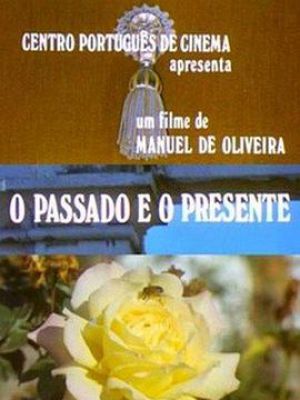
今与昔
(1972)
评分:
-
音画
0.0分 / 0人
-
表演
0.0分 / 0人
-
剧情
0.0分 / 0人
Past and Present
- 编辑
- 主演:MariadeSaisset/曼努埃拉·德·弗莱依塔斯/BárbaraVieira更多
- 类型:喜剧 制片地区:葡萄牙 影乐酷ID:5058322dv IMDB:tt0069062
- 片长:115分钟 上映:1972-02-26(葡萄牙)
-
简介:Perhaps the most enjoyable Oliveira film I've watched so far also proved to be the most frustrating experience (through no fault of the genial Portuguese director, whom I saw at the 2004 Venice Film Festival): unfortunately, the copy shown on late-night Italian TV was of an atrocious quality – with intermittent picture loss, rampant pixellation and considerable stretches where the dialogue was so low and muffled as to be barely audible (thankfully, the movie was presented in its original language accompanied by Italian subtitles), despite the volume of my TV being practically set at its maximum level! The irony is that this was scheduled again on the very same channel just the other week and, had I known of the poor state of my copy, I'd have tried to record it again…though, of course, I would've had no guarantee that they were able get hold of a superior print unless I went through the whole thing over again! Anyway, having seen it, I'm now able to understand how Oliveira felt so completely at home making that Bunuelian tribute BELLE TOUJOURS (2006); in fact, this has much the same aura of elegant surrealism evident in the Spaniard's contemporaneous masterpiece THE DISCREET CHARM OF THE BOURGEOISIE (1972), while throughout Oliveira displays an admirably Ophulsian propensity for intricately mobile camera-work. The premise is original and quite delightful: a woman has lost a husband and remarried; she used to despise the former but, now, she realizes how much she actually loved him and, consequently, starts to neglect Spouse No. 2. Also, the first husband had an identical twin brother – so the wife feels closer to him than her current husband; the latter, humiliated by this awkward situation, commits suicide! Then, the sibling of the deceased confesses that he's actually the man she married and that it was his twin who had died (he just had the inexplicable urge to exchange identities with him!); so, the ex-bride and groom go to court to make their re-union legal…except that, by this time, it dawns on her that Husband No. 2 is the one she truly loves! Amid all this, their close circle of friends try to make head or tails of the woman's whims and quirks; further complications, however, arise out of the subplot involving a man who makes passes at two of the women (one's married, the other happily cohabiting with her divorced ex!). The latter turns him down flat, while his affair with the former proves no less volatile than the leading lady's roundabout ways; the man, then, deliberately picks a fight with his lover's husband – who had earlier also exchanged harsh words with the heroine's cynical second husband. Though lacking perhaps the cheerful mockery that Bunuel managed to bring to this essentially staid environment (even if the Mendelssohn score still lends it undeniable irony), Oliveira's script is both intelligent and witty – to which his small cast of unknown actors (to me, at least) respond extremely well. These extend to even the minor roles of butler and maid: apart from indulging in their own romantic dalliances from time to time, the butler is visibly annoyed in having to attend to the mansion's gates after every vehicle that calls at the premises (in fact, apart from a brief flashback and the church finale, we're virtually stuck on the grounds of this single location). He also witnesses the second husband's fatal leap from the window as well as the wife's escape from the very same room (in which she's been locked by Spouse No. 1 after her passion for his replacement is re-ignited), while the maid has no qualms about spying on her masters' violent squabbles through a keyhole. The ironic ending sees all concerned attending the wedding ceremony of a young bride and groom – with the central couple entering the church together but then taking separate seats away from one another because of lack of room; the emphasis placed on the newlyweds' promises of lifelong devotion obviously ring hollow at this point while, seemingly on a whim, Oliveira decides to end the film on an amusing shot of the church organist (sporting the somewhat clichéd unkempt appearance of the typical musicologist). It should be said here that PAST AND PRESENT is the first entry in the director's so-called "Tetralogy Of Frustrated Love" along with BENILDE OR THE VIRGIN MOTHER (1975), the five-hour TV serial DOOMED LOVE (1979) – both of which I own and intend to check out presently, as part of my ongoing retrospective honoring Oliveira's 100th birthday next month – and the as-yet unavailable FRANCISCA (1981).



